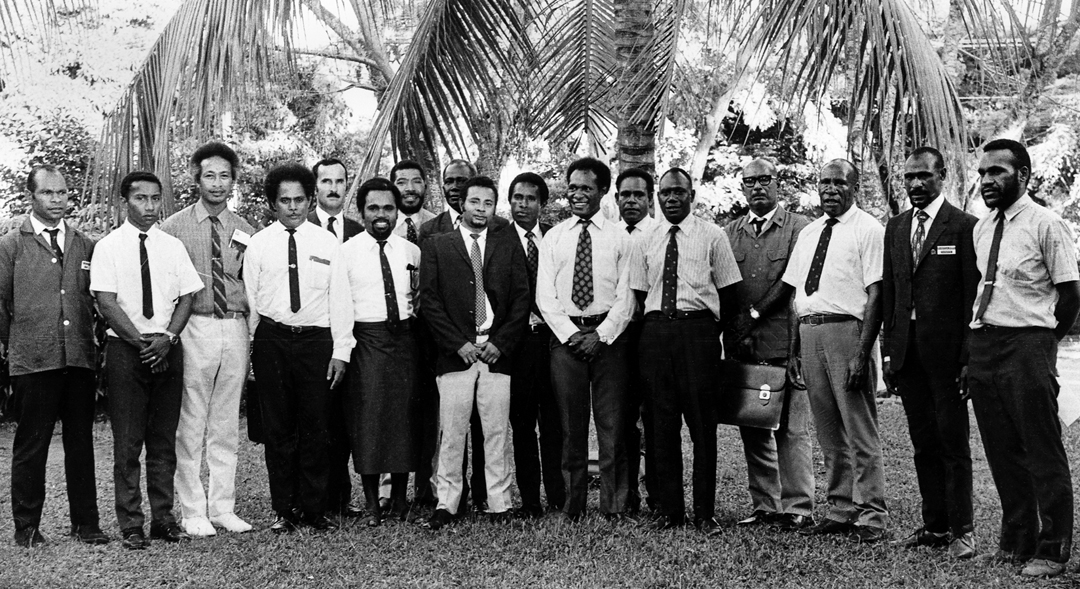OUR HISTORY
The Creation of CLRC
The Constitutional and Law Reform Commission (CLRC) is Papua New Guinea’s only mandated law reform agency. It is an independent constitutional office that was established when the then Law Reform Commission (Law Reform Commission Act 1975) and the former Constitutional Development Commission (Constitutional Development Commission Act 1997) amalgamated or merged under the Constitutional and Law Reform Commission Act 2004, which also effectively repealed the LRC Act 1975 and CDC Act 1997. The new CLRC become operational on 28th September 2006 when it was publicly launched. Merging the two institutions conveniently brought the functions of keeping all the laws of PNG, including the Constitution and the Organic Laws, in check, under one roof. These allowed for the process of reviewing and amending of laws to be undertaken on a regular, consistent and systematic basis and in a coordinated manner using a single format.
The core business of the CLRC is primarily found in the Constitution, the CLRC Act and the Underlying Act 2000. CLRC’s core function is to review, and reform the laws and recommend reform proposals to the Government and Parliament. When reviewing any law, CLRC always consult and seek the permission of the people and key stakeholders because they are the owners of the Constitution and all the laws emanating from it. Reforming or changing of laws is crucial to ensure the laws suit or appropriately adapts to the changing needs and circumstances of the nation whether political, economic, social or even technological. Prior to independence in 1975, Papua New Guinea was governed by colonial administrations with laws that served the interests of the colonial admirations more than they did for the native inhabitants.
Effectively CLRC’s role is to continue the decolonization process to “reform the law by eliminating defects in it, simplifying it, and modernizing it in order to bring ‘it into accord with our current conditions, purpose and need, thereby by continuing the work of the Constitutional Planning Committee(CPC) after Independence in 1975 and beyond.
Constitutional Development Commission (CDC)
The CDC found its basis in Section 260 of the National Constitution which provides for an Act of Parliament to establish this Commission .Its principal task was inquire to enquire into· the workings of the Constitution and the Organic Laws and any other matter of a constitutional nature as the Head of State, acting on advice of the National Executive Council, may direct. The Commission was required to submit its report on its findings and recommendations to the Speaker for presentation in Parliament. When the CDC first started out as the Interim General Constitutional Commission in 1975, it played a crucial role in ensuring that any proposed alterations to the National Constitution which was created and adopted straight after Independence, were considered and relevant proposals made to Parliament for debate for any proposed legislation.
Transitional history of the CDC since 1975:
-
1997– Constitutional Development Commission established through the constitutional Development Commission Act 1997.
-
1996 – Constitutional Commission Act (Amendment) 1996.
-
1994 – Constitutional Commission Act (Amendment) 1994.
-
1993– Constitutional Commission established through the Constitutional Commission Act 1993.
-
1978– General Constitutional Commission established through the Constitutional Commission Act 1978.
-
1975-Interim General Constitutional Commission established through Constitutional Commission (Interim Provisions) Act 1975.



